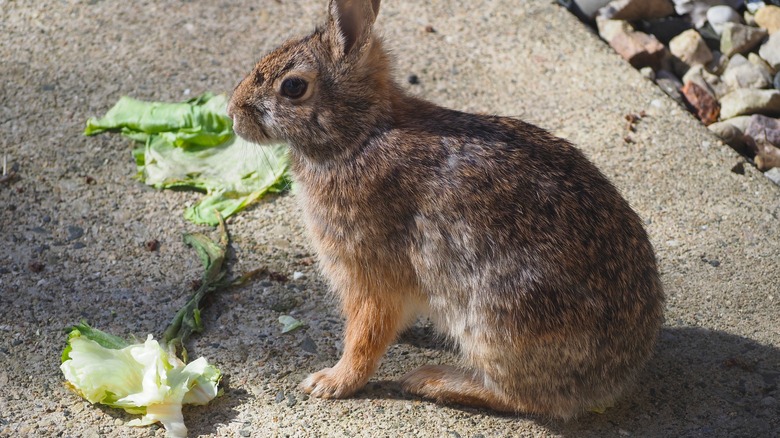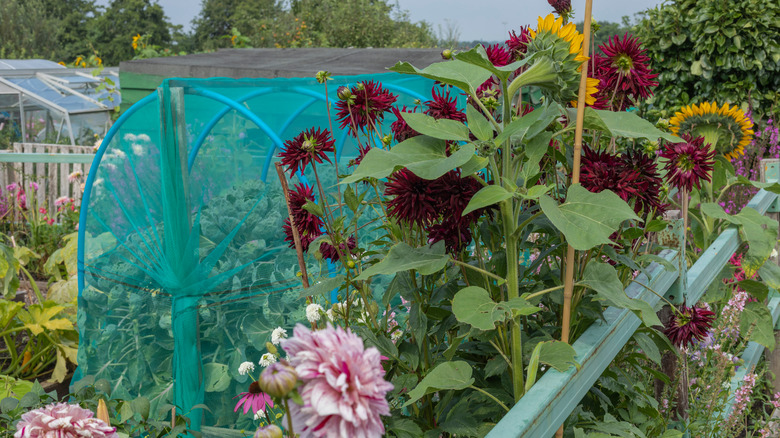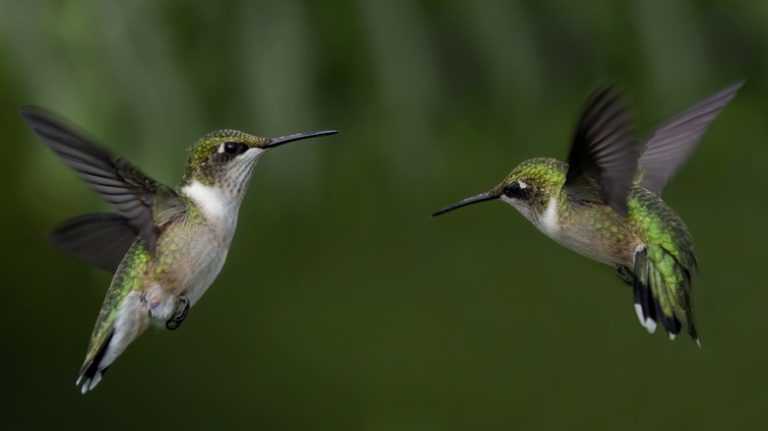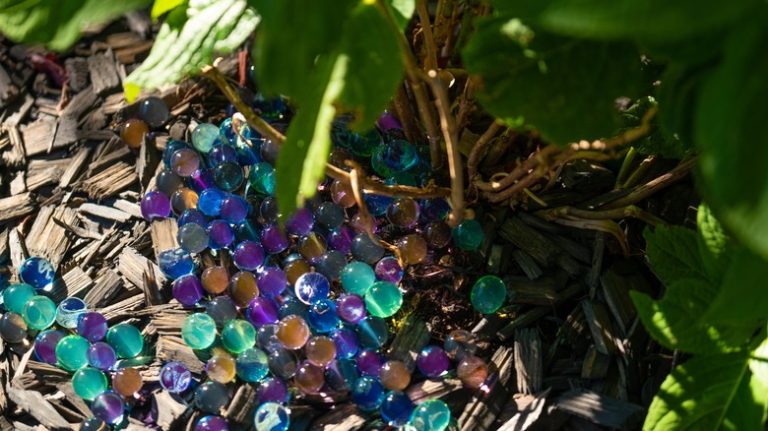Rabbits, even wild ones, are undeniably cute. But there are some instances where advice on how to attract bunnies to your garden will be brushed aside regardless of your love of fluffy wildlife. In fact, far from it; you want to keep them away from the delicious vegetables you’ve worked so hard to cultivate. Exactly which veggies are the most attractive to rabbits? Lettuce, beans, and broccoli, to name just a few. You either need to avoid growing those vegetables altogether (hard for something as easy-grow and handy in the kitchen as lettuce) or keep the hungry hoppers off them.
The species of rabbit you’re most likely to encounter in America include snowshoe hares, jackrabbits (also a type of hare), and cottontail and brush rabbits, like the abundant desert (Western U.S.) and Eastern cottontails. In the wild, rabbits feed mostly on grasses and flowering plants in the spring and summer, and in the winter, they strip the base of trees and shrubs of bark. They typically turn to garden veggies when they’re first planted, attracted by the tasty (well, to them, anyway) new growth. Rabbits are crepuscular, meaning they’re most active at dawn and dusk. This makes it hard for gardeners to spot them nabbing their crops.
Vegetables wild rabbits love

Unfortunately, working out how to keep rabbits from destroying your garden is made harder by the substantial list of vegetables favored by these pesky pounders: Lettuce (and other leafy greens like spinach, kale, and Swiss chard), peppers, beans, squash, broccoli, beet leaves, carrots (roots and tops), peas, and soybeans. But why are these veggies so favored by these bob-tailed garden enemies? Rabbits, it seems, are adept at knowing which plants meet their unique nutritional needs. Young rabbits “quickly learn how to detect the required sources of minerals, water, and protein,” writes Ruishu Wang in a University of Queensland paper, citing Myers and Pole (1963).
For example, lettuce is low in calcium, and some rabbits suffer from bladder stones consisting predominately of calcium. Conversely, broccoli is a good low-oxalate calcium source. Regularly consuming moisture-laden vegetables (like lettuce) helps keep a rabbit’s intestines in good working order. Fresh vegetables like broccoli and carrots are packed with fiber— wild rabbits turn to them when their preferred foods, like grasses, are scarce. A 2024 study published in the Basrah Journal of Veterinary Research even found that rabbits were more reproductively healthy when fed lettuce versus alfalfa.
Rabbit-proofing your veggie patch

Did you notice, too, that these vegetables are all tender, relatively mild tasting, and lacking thorns or hairs? Rabbits favor plants with these attributes. Lettuce is so restrained, taste and texture-wise, that US agricultural researchers have experimented with adding bitter plant compounds to lettuce crops to make them less palatable to rabbits, per a 2001 paper in Crop Protection. Commercial crop decimation may be an indicator of wild rabbit palate preferences. Lettuce and broccoli are among the leading crops targeted by hungry wild rabbit populations in Australia. Carrots and lettuce are baits of choice for rabbit traps and poison delivery, further pointing to their appeal.
Most of us don’t really want to capture or dispose of the rabbits predating our beds. Thankfully, for the everyday gardener, there are lots of deterrents to explore in place of these rather drastic methods. Rabbits prefer new shoots and seedlings, so protect these young and growing plants with netting or fencing. You can also grow varieties of these preferred vegetables less likely to attract rabbits. For example, iceberg lettuce has lactucarium — a compound toxic to rabbits — so they may innately know to avoid it. They also dislike thick-skinned, tough-leaved plants. Cultivate vegetables or varieties with these attributes to create a rabbit-proof garden.



